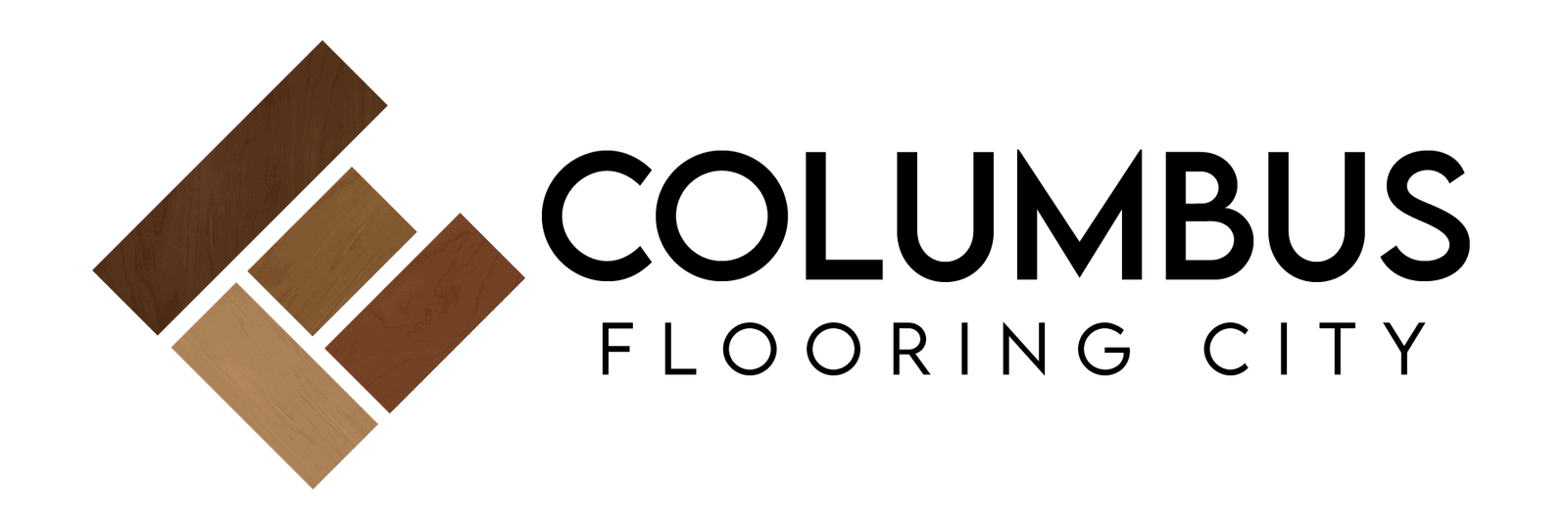The options seem endless when selecting the perfect flooring for your home or office. Each flooring type boasts unique advantages and drawbacks, making the decision-making process daunting. In this comprehensive Flooring guide, we are comparing vinyl flooring vs. other flooring options such as hardwood, laminate, tile, and engineered wood.
Let’s delve into vinyl flooring and explore its distinctive features compared to its counterparts. By understanding the characteristics and benefits of each flooring option, you can confidently choose the one that best suits your specific needs and preferences.
Vinyl Flooring vs. Hardwood Flooring: A Clash of Elegance and Versatility
Appearance and Aesthetic Appeal:
Vinyl Flooring: Embracing versatility, vinyl flooring offers an extensive array of designs, colors, and patterns to match any style or decor effortlessly. It can mimic natural materials’ appearance with remarkable accuracy, including hardwood’s timeless beauty.
Hardwood Flooring: Radiating sophistication, hardwood flooring showcases the organic allure of nature. It’s rich grains and exquisite textures create a warm and inviting ambiance, lending a touch of timeless elegance to any space.
Durability and Maintenance:
Vinyl Flooring: Engineered to endure, vinyl flooring boasts exceptional durability, rendering it ideal for high-traffic areas. It stands strong against scratches, stains, and water damage, demanding minimal maintenance through regular sweeping and mopping.
Hardwood Flooring: While exuding durability, hardwood flooring necessitates more TLC than vinyl. It may be susceptible to scratching and require periodic refinishing to retain its original luster.
Installation:
Vinyl Flooring: Effortless installation is a hallmark of vinyl flooring. Its flexibility allows for easy installation as a floating floor or through glue-down methods, providing convenience and flexibility.
Hardwood Flooring: The installation process for hardwood flooring can be more labor-intensive and time-consuming. Achieving precise alignment and stability often calls for professional expertise.
Cost:
Vinyl Flooring: Striking a harmonious balance between affordability and quality, vinyl flooring is generally more budget-friendly than hardwood. It offers a cost-effective solution without compromising on aesthetic appeal.
Hardwood Flooring: With high-quality materials and professional installation requirements, hardwood flooring tends to be more expensive.
Environmental Impact:
Vinyl Flooring: From an environmental standpoint, vinyl flooring is not regarded as the most eco-friendly choice due to its synthetic nature, primarily composed of PVC. However, select manufacturers now offer vinyl flooring with improved environmental credentials.
Hardwood Flooring: Sourced from sustainable forests, hardwood flooring stands as a renewable resource, making it a more environmentally conscious alternative to vinyl.
In comparing vinyl flooring vs. other flooring options, both vinyl and hardwood flooring possess distinct advantages. Vinyl flooring offers affordability, durability, and easy maintenance, while hardwood flooring exudes natural beauty and timeless appeal. You can confidently make an informed choice by considering your budget, lifestyle, and aesthetic preferences.
Vinyl Flooring vs. Laminate Flooring: Unveiling the Best Blend of Durability and Versatility
Material Composition:
Vinyl Flooring: Crafted from synthetic materials, primarily PVC, vinyl flooring boasts exceptional resistance to moisture and stains, delivering unparalleled durability.
Laminate Flooring: Comprised of a compressed fiberboard core with a photographic image layer protected by a clear wear layer, laminate flooring also exhibits moisture resistance but to a lesser extent than vinyl.
Appearance and Realism:
Vinyl Flooring: Embracing cutting-edge printing techniques, vinyl flooring achieves remarkable realism, closely mimicking the look of natural materials such as hardwood or stone. Its vast design options provide unparalleled versatility.
Laminate Flooring: While laminate flooring successfully replicates the appearance of hardwood, stone, or tile, vinyl flooring surpasses realism. However, laminate flooring offers various designs and patterns to suit various styles.
Durability and Maintenance:
Vinyl Flooring: Demonstrating exceptional resilience, vinyl flooring excels in resisting scratches, stains, and water damage. Its low-maintenance nature calls for simple sweeping and occasional mopping.
Laminate Flooring: While generally durable, laminate flooring can be more prone to scratching and water damage than vinyl. Similar maintenance requirements apply, although excess moisture should be avoided.
Installation:
Vinyl Flooring: Renowned for its user-friendly installation process, vinyl flooring can be installed as a floating floor or through glue-down methods. Some products even feature a convenient click-and-lock system.
Laminate Flooring: Laminate flooring offers relatively easy installation with its click-and-lock mechanism. However, underlayment may be required for enhanced noise reduction and moisture protection.
Cost:
Vinyl Flooring: Positioned as a more budget-friendly option, vinyl flooring generally proves more affordable than laminate flooring. This makes it ideal for those seeking cost-effective solutions without compromising quality.
Laminate Flooring: Laminate flooring may carry a slightly higher price tag than vinyl, but it still offers good value for money, considering its durability and aesthetic appeal.
In comparing vinyl flooring vs. other flooring options, both vinyl flooring and laminate flooring offer durability and versatility. Different types of vinyl flooring excel in moisture, stain resistance, and easy maintenance, while laminate flooring offers a realistic appearance and diverse design options. When deciding, consider budget, maintenance requirements, and desired aesthetics.
Vinyl Flooring vs. Tile Flooring: An Exploration of Moisture Resistance and Style
Material Composition:
Vinyl Flooring: Boasting a composition of synthetic materials, primarily PVC, vinyl flooring demonstrates outstanding moisture resistance and stain repellence.
Tile Flooring: Tile flooring can be crafted from various materials such as ceramic, porcelain, or natural stone, providing excellent moisture resistance. However, porous materials may require sealing.
Installation:
Vinyl Flooring: Renowned for its ease of installation, vinyl flooring can be installed as a floating floor or through glue-down methods. This makes it a suitable option for DIY enthusiasts.
Tile Flooring: The installation of tile flooring demands expertise and precision. It often involves mortar, grout, and meticulous cutting to achieve a professional finish. Professional installation is recommended for complex patterns or large areas.
Durability and Maintenance:
Vinyl Flooring: Exhibiting remarkable durability, vinyl flooring is resistant to scratches, stains, and water damage. Its maintenance requirements are minimal, primarily consisting of regular sweeping and mopping.
Tile Flooring: Tile flooring is known for its resilience and resistance to wear and tear. However, grout lines may require periodic sealing, and certain types of tile can be susceptible to cracking.
Design Options:
Vinyl Flooring: Offering an extensive range of design options, vinyl flooring provides various patterns, colors, and styles. It effortlessly mimics the appearance of natural materials like wood or stone, enabling creative freedom.
Tile Flooring: With its vast selection of designs, tile flooring allows for abundant creativity. Different shapes, sizes, colors, and textures can be combined to produce intricate patterns and personalized styles.
Cost:
Vinyl Flooring: Renowned for its affordability, vinyl flooring proves more cost-effective than tile flooring. It provides a budget-friendly solution without compromising on durability or aesthetics.
Tile Flooring: The cost of tile flooring can vary significantly depending on the material, quality, and design. Generally, it tends to be more expensive than vinyl flooring, particularly for high-end options.
In comparing vinyl flooring vs. other flooring options, both vinyl flooring and tile flooring are suitable choices for moisture-prone areas. There are different benefits of Vinyl flooring, including easy installation, durability, and an extensive range of design options, while tile flooring offers versatility and a unique, customizable aesthetic. When deciding, consider factors like installation complexity, maintenance requirements, and design preferences.
Vinyl Flooring vs. Engineered Wood Flooring: Unveiling the Perfect Blend of Style and Stability
Material Composition:
Vinyl Flooring: Crafted from synthetic materials, vinyl flooring achieves remarkable stability and moisture resistance. Its multilayered construction ensures durability and long-lasting performance.
Engineered Wood Flooring: Combining a real wood veneer layer with multiple layers of plywood or HDF, engineered wood flooring captures the natural beauty of hardwood while providing enhanced stability.
Moisture Resistance:
Vinyl Flooring: Renowned for its exceptional moisture resistance, vinyl flooring is an excellent choice for areas prone to spills or high humidity, such as bathrooms or basements.
Engineered Wood Flooring: While more moisture-resistant than solid hardwood, engineered wood flooring still requires precautions to prevent water damage.
Installation:
Vinyl Flooring: With its reputation for easy installation, vinyl flooring can be installed as a floating floor or glued down, ensuring a hassle-free process even for DIY enthusiasts.
Engineered Wood Flooring: The installation methods for engineered wood flooring vary, including floating floor, glue-down, or nail-down techniques. Precision and expertise are required to achieve optimal results.
Durability and Maintenance:
Vinyl Flooring: Boasting remarkable durability, vinyl flooring resists scratches, stains, and water damage. It demands minimal maintenance, primarily regular cleaning, to preserve its pristine appearance.
Engineered Wood Flooring: Wood flooring offers durability and moderate resistance to foot traffic. Periodic refinishing may be necessary to maintain its aesthetic appeal and protect against wear.
Aesthetics:
Vinyl Flooring: With its wide range of designs, including wood-like patterns and textures, vinyl flooring closely replicates the appearance of hardwood. This allows you to achieve your desired aesthetic at a more affordable price.
Engineered Wood Flooring: Engineered wood flooring provides real wood’s authentic look and warmth, creating a natural and inviting ambiance that is hard to replicate with other flooring materials.
In comparing vinyl flooring vs. other flooring options, both vinyl and engineered wood flooring offer the beauty of wood with their unique advantages. Vinyl flooring excels in moisture resistance and ease of maintenance, while engineered wood flooring captures the authentic appeal of hardwood. Consider factors like moisture levels, installation complexity, and desired aesthetics when deciding.
Conclusion
Vinyl is a versatile and cost-effective option among many choices in the quest for the perfect flooring. Its durability, moisture resistance, ease of maintenance, and extensive design options make it a worthy contender. However, when comparing vinyl flooring vs. other flooring options like hardwood, laminate, tile, and engineered wood, it’s important to consider factors such as aesthetics, durability, maintenance, budget, amd installation. You can read our vinyl flooring installation guide to know everything in detail.
By carefully considering these factors, you can confidently select the flooring option that transforms your space into a haven of style and functionality. Choose wisely, and let your floors become the foundation of a beautiful and inviting environment.
FAQs
What flooring is better than vinyl?
While vinyl flooring remains popular and versatile, other flooring types may be better based on individual preferences and requirements. Hardwood flooring emanates timeless elegance and natural beauty, while tile flooring offers excellent moisture resistance. Laminate flooring showcases realistic visuals, and engineered wood flooring combines the allure of real wood with enhanced stability.
Is vinyl flooring better?
Vinyl flooring has many advantages, making it a preferred choice for many homeowners and commercial spaces. Its durability, moisture resistance, ease of maintenance, and affordability contribute to its popularity. Nevertheless, determining the best flooring option depends on your needs and preferences.
What are the disadvantages of vinyl flooring?
While vinyl flooring presents numerous benefits, it is important to acknowledge some potential drawbacks. Vinyl can be susceptible to scratches from sharp objects, and extreme temperatures may cause expansion or contraction. Additionally, certain types of vinyl flooring may emit volatile organic compounds (VOCs) during installation or over time. However, low VOC options are available to mitigate these concerns.
Which is better, tiles or vinyl flooring?
The choice between tiles and vinyl flooring depends on several factors. Tile flooring offers exceptional durability, moisture resistance, and extensive design options. On the other hand, vinyl flooring provides similar benefits while being more affordable, easier to install, and softer underfoot. Consider your needs, design preferences, and budget to determine which option suits you best.

